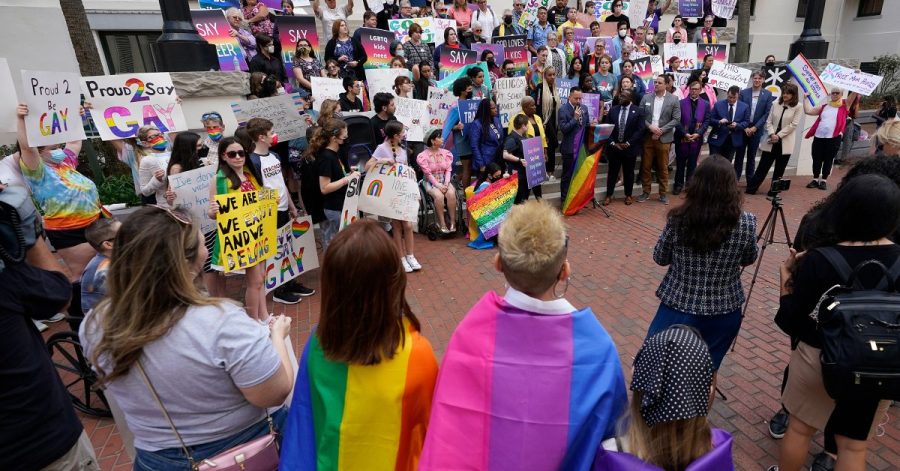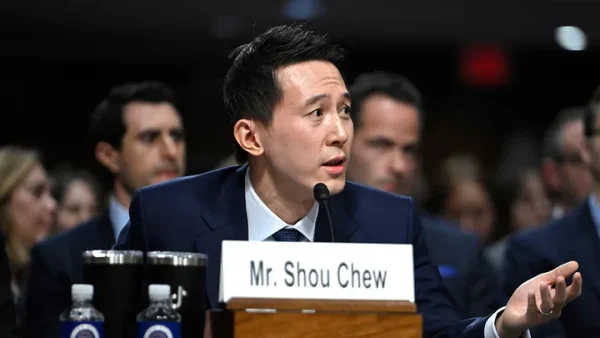[Opinion] Florida’s ‘Parental Rights of Education’ bill sparks controversy
April 13, 2022
Stirring massive controversy, Florida’s new bill has been given multiple names, mainly though are the names “Parental Rights of Education Bill,” while critics call it the “Don’t Say Gay Bill.”
The bill, which was signed into law by Gov. DeSantis on March 28, has garnered heavy controversy by many, but it seems that the way that people are talking about it indicates people did not read the bill, instead just looking at the nickname, which is quite misleading to its actual contents. The name indicates that the bill was specifically preventing schools from discussing people being homosexual, when, in reality, the content of the bill is different than it may seem.
The bill’s contents include the following section, which brought about controversy: “Classroom instruction by school personnel or third parties on sexual orientation or gender identity may not occur in kindergarten through grade 3 or in a manner that is not age appropriate or developmentally appropriate for students in accordance with state standards.” This means that children aged 5-8 aren’t to learn about sex, or sexuality in any way that is considered innappropriate for their age.
The intent of this bill was to insure that parents were the ones responsible for teaching their children about these kinds of things, not teachers. Though we personally don’t know why those things should be brought up in front of such young children, there is always a reason that rules were made, so it must have happened before.
Though we personally believe that children should not learn about sex or related subjects at that age, people do tend to bring up how teachers are supposed to react in situations when kids ask why another kid has two moms or two dads, to which we would believe that such a subject would fit under the category of being appropriate. If it did not, we would think that the alternative is to tell the child to ask their parents about the subject, so that the parents become responsible for teaching about such subjects.
While the media may be spinning the bill differently than it should be, it is up to the reader to interpret Florida HB 1557 and decide whether or not to agree with it.








![[Editorial] Schools should not have 4-day weeks](https://cardinalconnection.net/wp-content/uploads/2024/04/3.56-600x400.jpg)
![[Editorial] Texas schools should adopt 4-day weeks](https://cardinalconnection.net/wp-content/uploads/2024/04/blog_4-day-school-week.jpg)

![[Editorial] Passing periods should remain at 5 minutes](https://cardinalconnection.net/wp-content/uploads/2024/04/hall2-600x400.jpg)

![[Review] Denzel Washington delivers powerful performance in John Q](https://cardinalconnection.net/wp-content/uploads/2024/03/sddefault-600x450.jpg)
![[Review] Sonys Madame Web on record to become worst comic book film ever](https://cardinalconnection.net/wp-content/uploads/2024/03/GettyImages-1432889804-600x338.webp)

![[Review] Disneys Wish falls short of expectations at box office](https://cardinalconnection.net/wp-content/uploads/2024/01/hylyPAWw9ux6l7dqp3QGpsyEq6HNQ3xaEnJDXP9L-400x600.jpg)